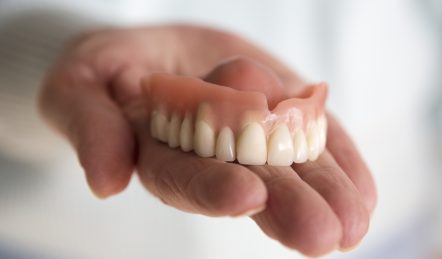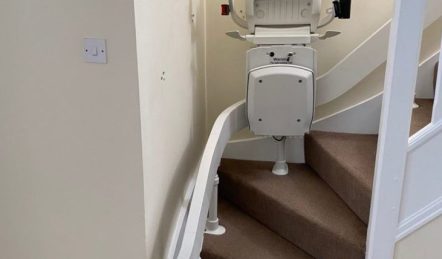The Pros and Cons of Dental Implants for Seniors: Cost, Risks, and Benefits.

Dental implants have become an increasingly popular option for seniors who are missing teeth. As we age, our teeth can become more susceptible to decay and damage, which can lead to tooth loss. Missing teeth not only affect our ability to eat and speak, but they can also have a negative impact on our self-esteem and overall quality of life. Dental implants provide a permanent solution for replacing missing teeth and restoring a natural-looking smile. In this article, we will explore the benefits of dental implants for seniors, the potential risks and complications, and how to determine if you are a good candidate for the procedure.
What are Dental Implants?
Dental implants are artificial tooth roots that are placed into the jawbone to support a replacement tooth or bridge. The implant is made of titanium, a strong and durable material that is biocompatible, meaning it can fuse with the bone and tissue in the jaw. This process is known as osseointegration and can take several months to complete.

Once the implant has fused with the bone, a connector called an abutment is attached to the implant. This abutment is used to support a replacement tooth or bridge, which is custom-made to match the color and shape of your natural teeth.
Benefits of Dental Implants for Seniors
Dental implants offer many benefits for seniors who are missing teeth. Here are some of the most important advantages:
Improved Oral Health: Dental implants can help prevent bone loss and maintain the structure of the jawbone. They also make it easier to brush and floss your teeth, which can reduce the risk of gum disease and other oral health problems.
Improved Speech: Missing teeth can affect your ability to speak clearly. Dental implants can help restore your speech by providing a stable and secure base for your replacement teeth.
Improved Nutrition: Chewing and digesting food can be difficult if you are missing teeth. Dental implants can help you eat a wider variety of foods, including those that are high in fiber and other important nutrients.
Improved Self-Esteem: Missing teeth can be embarrassing and make you feel self-conscious. Dental implants can help restore your confidence and improve your self-esteem.
Potential Risks and Complications
While dental implants are generally safe and effective, there are some potential risks and complications associated with the procedure. These include:
Infection: Infection can occur at the implant site during or after the procedure. Your dentist will provide you with antibiotics to reduce the risk of infection.
Nerve Damage: In rare cases, dental implants can cause nerve damage, which can result in pain, numbness, or tingling in the surrounding areas. Your dentist will carefully evaluate your oral health and discuss the potential risks and benefits of the procedure with you.
Implant Failure: In some cases, the implant may not fuse properly with the bone, leading to implant failure. This can usually be corrected with additional treatment.
Determining if You are a Good Candidate for Dental Implants
If you are missing one or more teeth and are interested in dental implants, it is important to schedule a consultation with a dental professional who has experience in implant dentistry. During the consultation, your dentist will evaluate your oral health and determine if you are a good candidate for the procedure.
Here are some factors that can affect your candidacy for dental implants:
Oral Health: Your dentist will evaluate the health of your teeth and gums to determine if you have any underlying oral health issues that need to be addressed before the procedure.
Bone Density: Dental implants require a certain amount of healthy bone density to support the implant. If you have significant bone loss, your dentist may recommend a bone grafting procedure to build up the bone.
Medical History: Your dentist will also review your medical history to determine if you have any health conditions that could affect the success of the procedure.
Overall, dental implants can
be a great option for seniors who are missing teeth and want a permanent solution for restoring their smile and oral health. However, it is important to carefully consider the potential risks and complications before deciding if dental implants are right for you.
Cost of Dental Implants for Seniors
The cost of dental implants can vary depending on several factors, including the number of teeth being replaced, the location of the missing teeth, and the type of implant being used. In general, dental implants can be more expensive than other tooth replacement options such as dentures or bridges.
Here are some of the factors that can affect the cost of dental implants:
Number of Teeth: The cost of dental implants will increase with the number of teeth being replaced. If you are missing several teeth, you may need multiple implants, which can increase the overall cost of the procedure.
Location of Missing Teeth: The location of the missing teeth can also affect the cost of dental implants. If the missing teeth are in the front of the mouth, the replacement teeth may require more customization and a higher level of skill from the dentist, which can increase the cost.
Type of Implant: There are several types of dental implants available, each with their own cost. Traditional implants are the most common and tend to be less expensive than newer, more advanced implant options.
Insurance Coverage: While dental implants are not always covered by insurance, some plans may cover a portion of the cost. It is important to check with your insurance provider to determine what, if any, coverage is available.
Financing Options: Many dental professionals offer financing options to help make dental implants more affordable for seniors. This can include payment plans, low-interest loans, and other financing options.
In general, the cost of dental implants can range from $1,500 to $6,000 per tooth, with the average cost falling around $3,000 to $4,500 per tooth. However, it is important to note that these costs can vary depending on the factors listed above.
Conclusion
Dental implants can be a great option for seniors who are missing teeth and want a permanent solution for restoring their smile and oral health. While there are some potential risks and complications associated with the procedure, the benefits of dental implants generally outweigh the risks for most patients.
If you are considering dental implants, it is important to schedule a consultation with a dental professional who has experience in implant dentistry. Your dentist will evaluate your oral health and determine if you are a good candidate for the procedure. They will also discuss the potential risks and benefits of the procedure, as well as the cost and financing options available to you. With proper care, dental implants can last for many years and provide a permanent solution for restoring your smile and oral health.








































